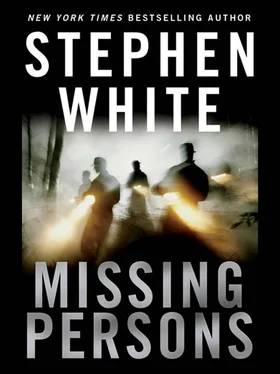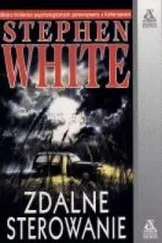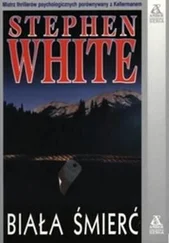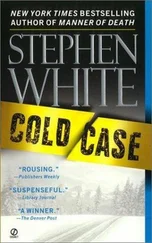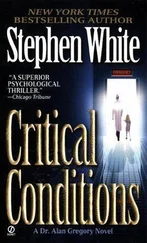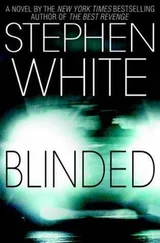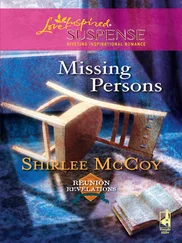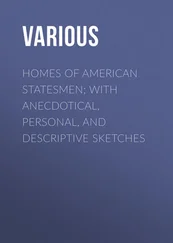Two craps dealers were each a couple of grand richer than they’d been before they’d gone to work that day and met Raoul. With that kind of incentive they might be inclined to have a drink with him after their shifts were over.
I asked, “When are they off?”
“Three hours or so. We’ll see what happens. My expectations are low. I gave a woman some money to pass each of them a note that said I wanted to talk with them. She says she did it, but who knows? Their bosses may have warned them off.”
“A frustrating day?”
“They’re the house. They have the cards; they have the odds. My only advantage is that I’m more motivated than they are. They don’t understand that yet. One guy at the craps table slipped me his business card when he heard me ask the woman next to him about Diane. He’s a VP for some shopping-center developer. They do malls.”
“A gambler?”
“In his heart, that kind of gambler. I waited until he left the table and then I called his mobile number after about twenty minutes. I told him I was the guy from the craps table. He said, ‘Not now.’ I asked, ‘When?’ And he said, ‘I have your number now. I’ll call you.’ Then he hung up.
“ Pastanaga. I think he was playing with me.”
“He hasn’t called?”
“In Vegas terms the night is young, right? Me? I’m twenty years older than I was at this time yesterday. A week more of this and I’ll be ready to trade in the craps table for some pinochle.”
I could almost feel his despair. I was on the portable phone, wandering between the mostly dark kitchen and the mostly dark living room, where I stopped and found myself, once again, searching for Twelfth Street in Boulder’s dark grid. Looking for the Millers’ house, and for Doyle’s.
The noise in my ear was Sinatra and percussion. Traffic, too. A siren.
“Are you in a club?”
“I’m at the Bellagio. Outside, watching the fountains. I like them. I know they’re garish, but I like them. Have you ever seen them?”
“Only on TV.”
“Someday then.”
“Yes.” Maybe. “With Diane.”
“With Diane, sí. Alain?”
I was a bit taken aback. He hadn’t used the French pronunciation of my name for a long time.
“Yes.”
“If there were a man involved-with my wife-you would tell me?”
“What? You mean a-”
“Yes. Un autre. We’re grown-ups here, right?”
That Raoul was susceptible to whatever affective tides the prospect of infidelity caused in other people surprised me. Where romance was concerned, Raoul lacked confidence the way Spider-Man lacks grip.
I said, “To the best of my knowledge, this has nothing to do with another man. Nothing.”
“Thank you. I had to ask.”
“Raoul? The Rachel you’re looking for? It’s Mallory Miller’s mother. That’s who Diane went to Vegas to try to find.”
He was silent. I hadn’t lost him; I could still hear the Sinatra and the fountains and the impatience of the traffic on the Strip, but Raoul wasn’t speaking. As the interlude grew longer, I immediately flashed back to the night before and Diane’s abrupt disappearance from the conversation I was having with her in the casino. My heart accelerated like a teenage driver with a lead foot chasing after a pretty girl.
“Raoul? You there?”
“I’m here.”
“I was afraid I lost you.”
“You didn’t lose me; I’m thinking. Diane went to see the missing girl’s mother?”
“If you’ve followed Mallory’s story in the news, you may also know that Rachel Miller suffers from mental illness. That might be important for you to know when you finally find her.”
“I don’t read that kind of thing. Diane tells me, but she didn’t tell me that. What kind of mental illness?”
I wasn’t sure what the tabloids had reported. “I know the answer to your question, Raoul, but I shouldn’t say. It’s something serious. Let’s leave it at that.”
“Is she dangerous?”
“Rachel? Unlikely, highly unlikely.”
“Why did Diane want to see her?”
“I found a way to rationalize telling you who Rachel is. Giving you the why part is much harder. I’m sorry. And I’m not sure it will help you to know the answer. If I think it will, I’ll tell you, I promise.”
The fact that Mallory’s mother lived in Vegas, even the fact that she lived in Vegas and suffered from a severe mental illness, had been reported in the news media. I wasn’t telling Raoul anything new by telling him that. If a patient tells a psychologist that the sun came up that morning, the news isn’t necessarily confidential. The psychologist can share the revelation with others.
Raoul asked, “Is Diane mixed up with whatever happened to Mallory Miller?”
“I can’t”-I fumbled for a word that seemed to fit-“address that.”
“You could if your answer was no.”
To myself, I said, Thank you. Raoul was absolutely right. I could tell him if the answer was no. But the answer wasn’t no, and he knew exactly what that meant. “I can’t argue with your conclusion, Raoul.”
“This mess-whatever this mess is-it started with Hannah’s death, didn’t it?”
I thought for a moment about what I could say in reply. “Hannah’s death started a lot of balls rolling.”
He responded with, “Si ma mare fos Espanya, jo seria un fill de puta.” From the cadence and tone, I assumed it was profane, and from the reference to Espanya I guessed that a Spaniard wouldn’t be thrilled to hear the phrase cross Raoul’s Catalonian lips.
I hadn’t been on the University of Colorado campus for a while. January wasn’t my favorite time for a visit, and the Duane Physical Laboratories wasn’t my ideal destination. But when my 11:15 appointment canceled on Thursday, I recognized that if I added the newly freed time to my midday lunch break, I had a seventy-five minute hole in my day. I decided to make the short trip from my office to the university.
The physics building is a large, angular, modern complex on the east side of the Boulder campus, segregated by roadways and by design from the cluster of lovely brick or flagstone structures that form the Mediterranean architectural core of the original university. The newer academic buildings surrounding Duane were, like Duane itself, looming, cast-concrete forms faced with just enough flagstone and roofed with just enough red tile to pay wink-wink homage to the Tuscan soul of the place.
I’d been aware of Duane for years; the tallest structure on campus, situated right across Colorado Avenue from the Muenzinger Psychology Building, it was hard to miss. But, given my arm’s-length relationship with the physical sciences, or at least my arm’s-length relationship with the study of the physical sciences, I’d never had reason to go inside Duane. Once I did make my way into the building looking for Bob, my initial impression was that Duane was state-university big and anonymous and that the notices on the bulletin boards were mostly about things I didn’t understand and, more to the point, until that moment didn’t even know that I didn’t understand. A professor was looking for a research assistant to study femtosecond optical frequency combs. Another lab needed help developing microcalorimeters and bolometers based on superconducting thin-films cooled to 0.1 K.
I didn’t know what any of it meant, not even close, but I was almost one hundred percent confident that I wasn’t their man. The students wandering the flavorless hallways-students who likely deserved my respect because, unlike me, they might have a prayer of being able to translate the bulletin boards-seemed a bit more serious than those I was accustomed to running into in my usual haunts on campus.
Читать дальше
